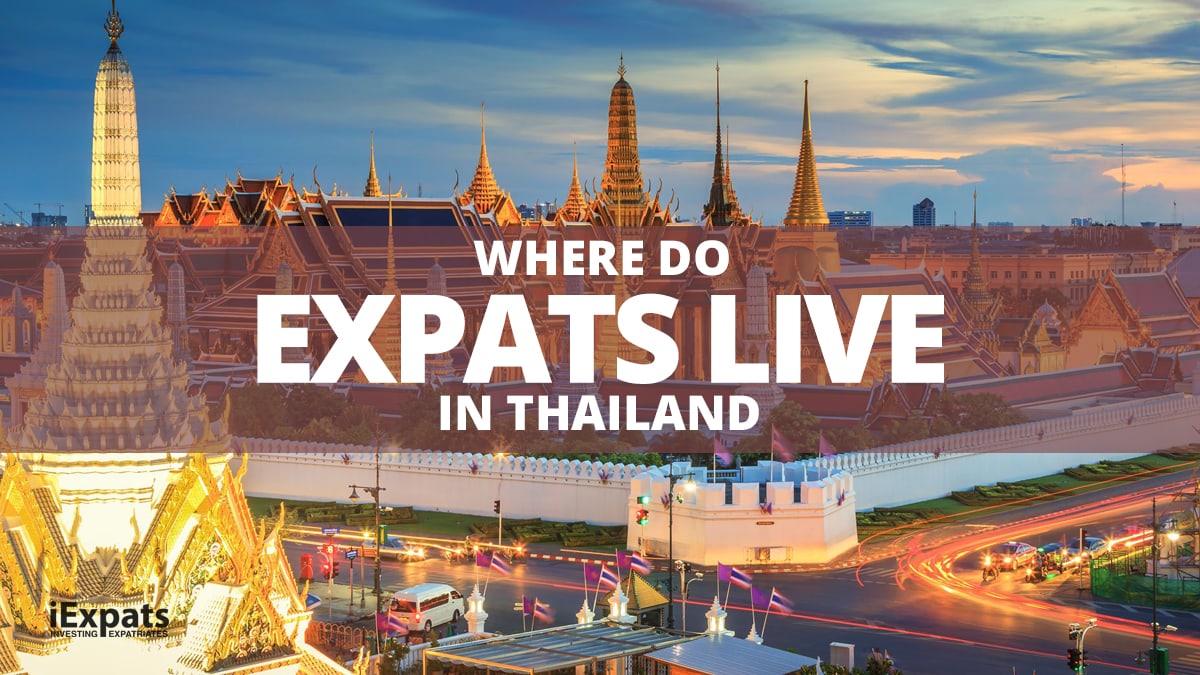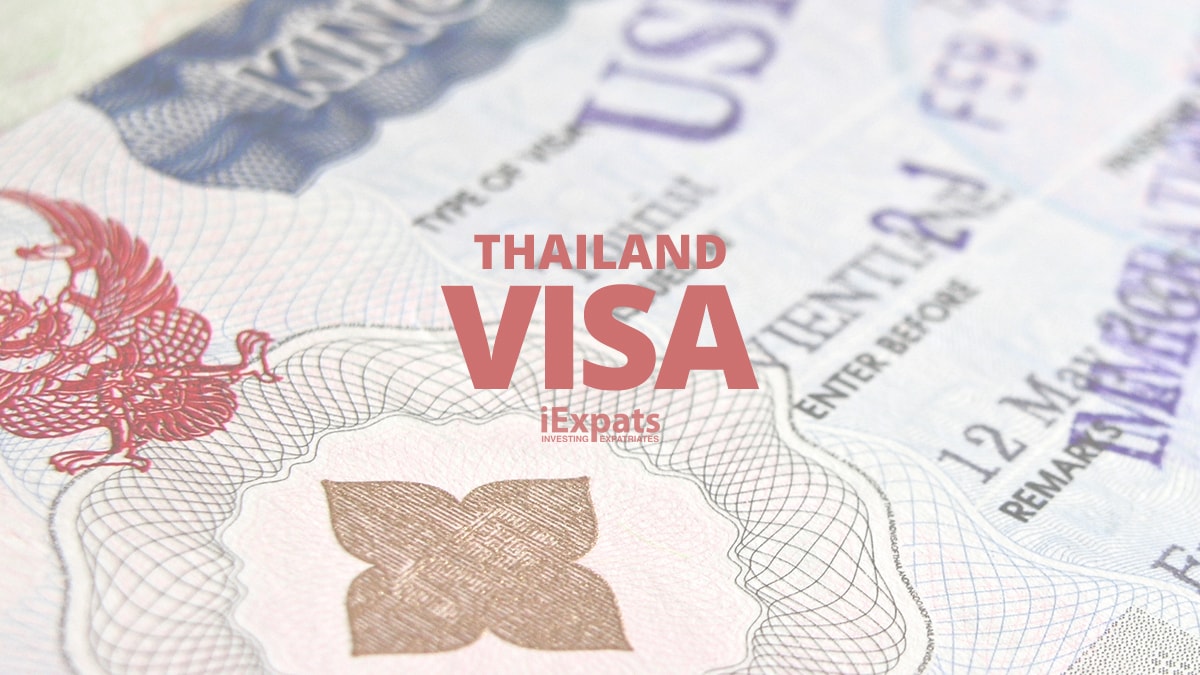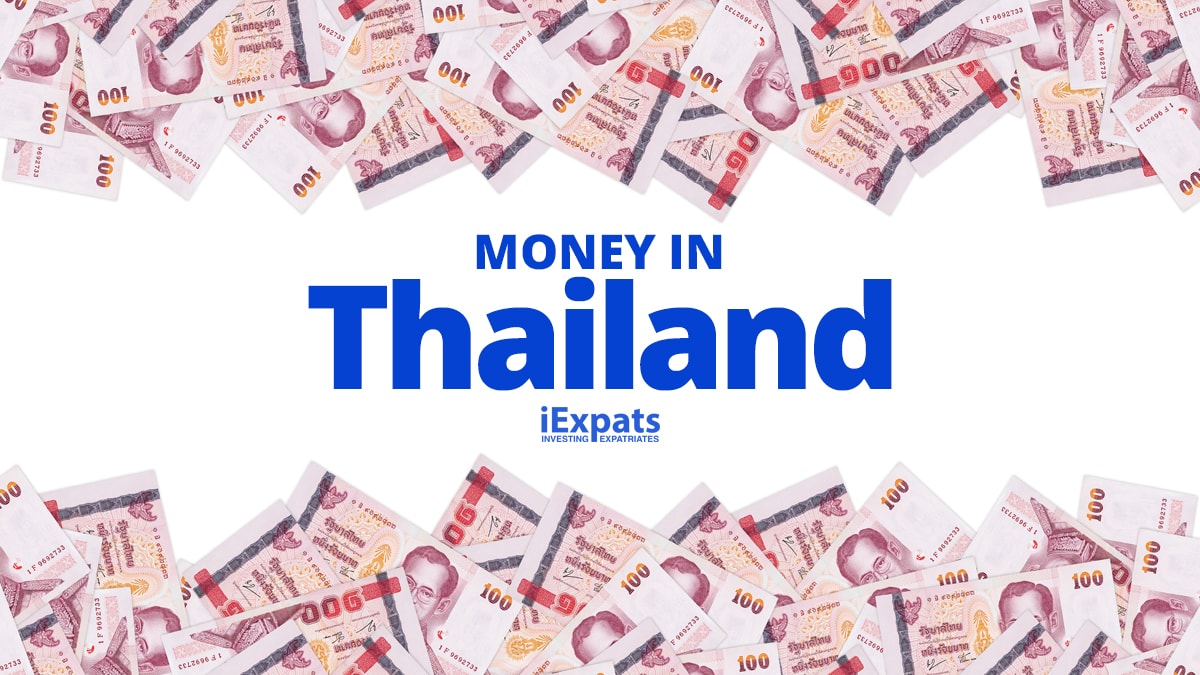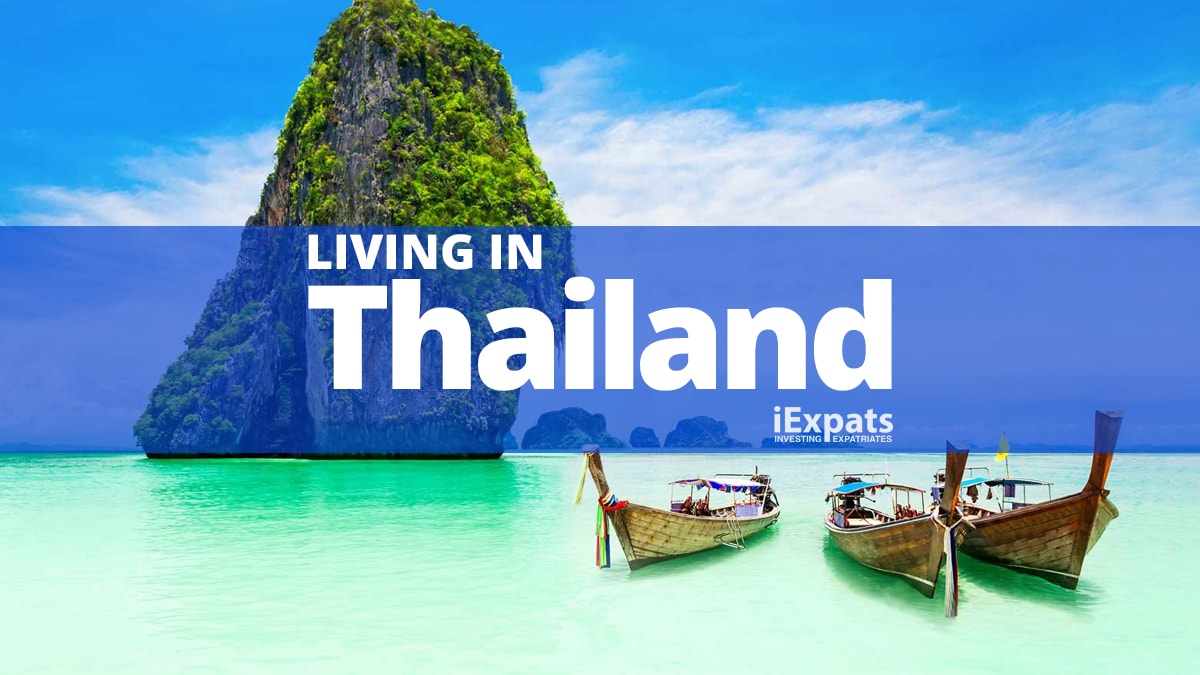Estimated reading time: 15 minutes
There are many reasons why Thailand is the most popular Asia Pacific destination for expats.
The tropical climate, endless beaches, bustling cities, friendly people, cheap cost of living and laid-back approach to life are among the factors that make Thailand a favourite place for expats to live or retire.
But enjoying an exotic holiday in Thailand for few weeks is much different from permanently moving your life to a new and unfamiliar culture and country.
Nothing can offer a flavour of living the dream because everyone has a different view on life, but here are some pros and cons of living in Thailand gathered from expats who are glad they have already made the move.
Table of contents
- Expat Thailand Experience
- Where Expats Live In Thailand
- Jobs And Salaries
- Residency, Visas And Passports
- Cost Of Living In Thailand
- Cost of Living in Thailand Compared to the UK
- Money And Pensions
- Expat Tax In Thailand
- Healthcare In Thailand
- Schooling And Further Education
- Driving In Thailand
- Voting In Thailand
- Customs and Traditions in Thailand
- Thailand Expats FAQ
- Related Information
Expat Thailand Experience
Expat expectations depend on if they have moved for their career or to enjoy their golden years in relaxing on a tropical beach in the glow of a warm sun.
Thailand is an ancient country with an often wild and vibrant past.
To better understand Thailand today, you need to understand what has gone before and how the country’s history has influenced the present.
Thailand facts and figures
Thailand is a large country that sits on the Indo-China peninsula between the Andaman Sea and Gulf of Thailand.
The Kingdom of Thailand – known in the past as Siam -borders Myanmar, Laos, Cambodia, and Malaysia.
With a population of 79 million, Thailand hovers around the mark of the 20th most populous country in the world.
The capital and largest city is Bangkok, an important air travel hub for the region. Bangkok and the surrounding area have a population of more than 14 million. Other important cities include Nonthaburi and Samut Prakan.
Politics
The Thai government likes to think of the country as a constitutional monarchy and a parliamentary democracy.
However, the country has seen coups and military rule in recent years.
On balance, the government is stable.
Religion
Buddhism is the most popular religion with Thais, followed by a small number of Muslims and even fewer Christians. Thais will show religious tolerance to all faiths.
Language
Thai is the principal language, although thousands of Thais speak dozens of dialects outside of urban areas. Learning English is compulsory at school and popular at university, but few Thais are fluent speakers.
Climate
Because Thailand is such a large country, the climate can vary between regions.
Typically, the best weather for expats is between November and April, when temperatures average between 29C and 34C.
The other months can be very wet – with November the worst, with an average rainfall of around 200mm in many places.
Expect wet weather – Thailand is a monsoon country where a lot of rain can fall in a short time.
Currency
The currency of Thailand is the Thai Baht. The exchange rate is around 39.5 Thai baht to £1.
Where Expats Live In Thailand

The choice is endless for retirees, but anyone moving for work mostly settles to live in Bangkok or one of the other large cities.
Time after time, the beautiful city of Chiang Mai tops polls of Thailand’s best place to live.
The mountain retreat is an hour’s flight to the north of Bangkok.
Offering a calmer, more introspective lifestyle, the region is an important Buddhist religious centre with hundreds of temples, some dating back to more than 700 years old.
History rubs shoulders with a modern lifestyle in Chiang Mai, which also has modern shopping malls, a private hospital, cinemas, and many of the facilities expats would expect back home.
A drawback in an otherwise tranquil backwater is poor air quality when farmers burn the stubble in their fields to clear the way for new crops.
If you are looking for sun, sea, and sand, then Koh Samui comes to mind.
The island nestling in the warm, blue waters of the Gulf of Thailand, has miles of quintessential palm-fringed and white sand beaches. Peaceful days explode into life in the resort town’s bars and restaurants at night.
Watch out for the trained monkeys that harvest coconuts, the island’s main industry other than tourism.
Bangkok offers everything expats desire from a modern busy city.
Literally anything is possible in Bangkok and the city is a magnet for expats on holiday or between assignments.
The busy streets let expats rub shoulders with locals in colourful markets and enjoy snacks on the go from one of the many traders. The nightlife is legendary with noisy clubs and neon-lit bars open until the early hours.
Drawback – Expect to rent a condo rather than buy a home as Thai law restricts owning property for expats.
Jobs And Salaries
The working day in Thailand is much longer than the shift many expats put in at home. Working 50 hours or more a week is common.
Experienced corporate executives should expect to earn between 40,000 baht and 120,000 baht a month – equivalent to between £1,000 and £3,000.
Companies look for top talent in accounting, finance, IT, and human resources.
The average after tax salary for workers across the board is 20,000 baht a month (£506).
Residency, Visas And Passports

Thailand is popular with expats in the oil and gas industry on hold-over between assignments.
Generally, UK expats have a 30-day visa exemption but must get permission to stay longer. The government usually grants a second 30-day visa extension without question.
Expat British passports should not expire until at least six months after entering the country.
Immigration officials are likely to refuse entry to expats with damaged or missing pages.
Working in Thailand
Non-immigrant visas are essential for expats planning to work or run a business in Thailand – and for volunteer workers.
Apply for the visa before moving to Thailand through an embassy or consulate. In many cases, employers and voluntary organisations handle the application. For expats making a personal application, it is a good idea to have a letter from a voluntary organisation confirming the post.
Do not forget expats need a work permit to take up any voluntary or paid post.
If you have a UK degree or other education certificate, the document must be ‘legalised’ or confirmed as correct before you leave for Thailand as the British embassy or consulate do not offer the service.
For expats who have lived or worked in Thailand before may have to provide a Thai police clearance or a UK police clearance certifying any convictions.
Living in Thailand
Thailand has a complicated immigration process that seems to change regularly.
Do not fall for the temptation to overstay on a non-immigrant or tourist visa as the penalties are harsh.
They may include arrest and a stay in a detention centre before deportation – all at your own cost.
If deported, the authorities could ban you from returning to Thailand for up to 10 years.
Residence visas also come with strict controls that include reporting to a police station every 90 days and a list of travel and lifestyle conditions.
Expats can apply for the visa once they have had a non-immigrant visa renewed for three years in a row. The application will include criminal record and health checks.
Expats can apply for a special retirement visa when they reach 50 years old. They must also show they have at least 800,000 baht (£20,250) on deposit in a Thai bank account for at least three months before the visa application or earnings of 65,000 baht a month (£1,645).
You also need to make sure you have the Thai Yellow Book if you become a permanent resident.
A retirement visa does not allow retirees to work.
Expats married to a Thai national can apply for a marriage visa.
The visa does not impose an age condition and eases the financial proof – expats need to show 400,000 baht (£10,126) on deposit for two months before the application or earnings of 40,000 baht a month (£1,012).
Find out more about visas and residence permits from the Thai Immigration Bureau online
Cost Of Living In Thailand
Day to day spending in Thailand is around 27% lower than in the UK, while rent is 43% lower than in the UK on average, according to data filed by expats with cost of living monitor Numbeo.
The inexpensive lifestyle is one of the main attractions for expats of all ages who find that the pound in their pocket goes so much farther in Bangkok or in a Thai resort than back home.
Eating out is cheap – with a couple paying around £17 for a three-course meal.
A local beer costs £1.75 and a cappuccino £1.50.
Food is fresh, plentiful and the cost is much lower than in the UK.
The same goes for rent and utilities.
A three-bedroom city centre apartment attracts a rent of around £930 a month, falling to £500 in the suburbs.
The price of a basic pack of utilities, including energy, water, rubbish removal and heating is £65 a month. Fast internet will set an expat back £18 a month.
Cost of Living in Thailand Compared to the UK
- Consumer Prices in Thailand are 23.77% lower
- Consumer Prices Including Rent in Thailand are 28.73% lower
- Rent Prices in Thailand are 40.92% lower
- Restaurant Prices in Thailand are 65.42% lower
- Groceries Prices in Thailand are 0.40% lower
- Local Purchasing Power in Thailand is 62.16% lower
Money And Pensions

Cash is the easiest way to spend money in Thailand, but thousands of stores are pleased to take credit cards.
Popular tourist resorts and cities will have plenty of ATMs. The daily withdrawal limit for many is 20,000 baht (£500). The rest will have a 10,000 baht cap (£250). Thai banks charge a 200 baht (£5) withdrawal fee, so think about drawing larger sums to reduce the charges.
Expat State Pension payments in Thailand
Thailand has no reciprocal social security agreement with the UK, which means State Pension increases are frozen at the rate of the first payment received.
Expats can have the UK State Pension paid into a local bank, but as the transfer is in Sterling some fees may apply.
For 2020-21, the maximum State Pension payment is £175.20 a week (7,000 baht) or £9,110 a year (360,000 baht).
If you have misplaced your pension information you can trace a lost UK pension, find out how.
Workplace and personal pension payments in Thailand
Setting a budget to live on a fixed income is important for retirees, so here is a rundown of how UK and QROPS offshore pensions pay to British expats in Thailand.
| Pension | Type | Index-linked? | Income guarantee? | Currency | Paid to local bank? |
|---|---|---|---|---|---|
| Public sector | – | Yes | Yes | £ | Yes |
| Civil Service | – | Yes | Yes | £ | Yes |
| Workplace | Defined benefit (DB) | Yes | Yes | £ | Yes |
| Workplace | Defined contribution (DC) | No | No | £ | Yes |
| Personal | Defined benefit (DB) | Yes | Yes | £ | Yes |
| Personal | Defined contribution (DC) | No | No | £ | Yes |
| QROPS | Defined contribution (DC) | No | No | Any major currency | Yes |
QROPS pensions for Thailand expats
Thailand is not on the HM Revenue & Customs list of countries offering the Qualifying Recognised Overseas Pension Scheme (QROPS). That means transferring UK pensions to a current Thailand QROPS is not possible.
Moving retirement savings to another country will attract the Overseas Transfer Charge – a tax of 25% of the fund value.
British expats or Thai workers considering a QROPS transfer should discuss their options with a professional independent adviser.
Expat Tax In Thailand
Retired British expats in Thailand do not pay tax on any income from abroad – that includes pensions, dividends from investments and interest from savings.
They will pay tax on Income earned in Thailand but should be careful about working if they have a retirement visa as the conditions bar them from taking a job.
Other resident expats pay tax on income earned in Thailand or abroad, providing the money comes into Thailand in the year when earned.
The Thai government levies capital gains tax on offshore money from the sale of an asset brought into the country in the same tax year as the sale.
Expats are tax resident if they live in Thailand for at least 180 days in any tax year – which is the same as a calendar year.
Inheritance tax, wills and estate planning
Thailand has complicated inheritance tax and succession laws.
Expats should take professional advice about making a will and estate planning from someone familiar with local laws
Healthcare In Thailand
Expats with a non-immigrant or retirement visa must show they have valid private health insurance covering the length of their stay – which is typically 12 months.
The policy should cover up to 40,000 baht (£1,000) for outpatient treatment and 400,000 baht (£10,000) for inpatient costs.
Expats can take out Thai or international cover, providing the international policies have the same terms as a Thai policy.
Special arrangements are available for expats who cannot take out private medical insurance due to age or pre-existing conditions.
Taking medicines into Thailand
Thailand bans some common UK prescription and over-the-counter medicines.
Before taking medicines into Thailand, check they are legal
Schooling And Further Education
First class education is a priority for families moving to Thailand. Expats have the choice of sending children to a public school or opting for private schooling.
Public school standards rate poorly compared with other countries, according to the OECD PISA ratings.
Private schooling is not hard to find in major towns and cities, with around 150 institutions listed by the Thai Office of the Private Education Commission.
Expat parents can check online for local international schools with the International Schools Association of Thailand.
Thailand has 80 public and 70 private universities.
Tuition and fees vary but expect to pay 30,000 baht (£800) to 60,000 baht (£1,500) for a masters at a public university or about 75 baht (£2) to 4,000 baht (£100) a credit hour at a private institution.
Add accommodation, living costs and other expenses, like books, for the full cost.
Check The Times World University Rankings for Thailand further education ratings
Driving In Thailand
Driving in Thailand should not present a problem for expats. The roads are good, and signage is mostly in English as well as Thai.
A UK driving licence with an international driving permit makes driving legal
Motorcycles or quad bikes for hire in beach resorts are generally unregistered and are illegal to ride public roads.
Voting In Thailand
Expats may vote in UK General Elections and Bye-Elections in the constituency where they last lived. from Thailand.
Currently, the 15-year rule restricts expats to voting in elections for 15 years after leaving the UK.
The UK government has announced scrapping this rule, but no date is set for repealing the law.
Customs and Traditions in Thailand

Moving to a new country always presents language and cultural challenges for expats and relocating to Thailand is no different.
Although the people are friendly, some customs and laws are strict, and expats can cause offence by ignoring them even if they are unaware of expected proper behaviour.
Social media postings
Posting images on social media of people drinking alcohol or wearing inappropriate clothing can trigger a fine or even a jail term for the person uploading the images and the people in them.
Smoking
Taking more than 200 cigarettes into Thailand is illegal and checked by customs on arrival in the country. Breaking the law will see the cigarettes seized along with a fine of 10 times their value.
The government bans smoking on many popular beaches, including Koh Samui, Pattaya and in Phuket, Prachuap Khiri Khan, Chon Buri and Songkhla provinces. Smokers face a 10,000 baht fine (£250).
Vapes and vape refills are illegal in Thailand.
Same-sex relationships
The Thai authorities tolerate LHBT rights, but do not recognise same-sex marriages in law, even if an official ceremony took place in another country.
Thailand Expats FAQ
Thailand is a county of contrasts from the fabulous religious shrines of Chiang Mai in the north to pristine white sand tropical beaches stretching for miles on the Andaman coast and Gulf of Thailand.
Thailand welcomes tourists and expats, has low crime, a cheap cost of living and glorious sunshine for much of the year.
If you are considering moving to Thailand to work or retire, here are the answers to some of the most common questions expats ask.
The Thai climate varies from the cool mountains in the north to scorching summer temperatures in the south. Thailand is a monsoon country – so expect rain across much of the country from November to April. The average year-round temperature is 30C.
Your cost of living depends on your lifestyle but expect day-to-day bills to come to nearly 30% less than in the UK.
The average Thai salary is £500 a month which compares to a UK State Pension of £760 a month for retirees.
Yes. The Thai government offer various visas and residence permits depending on if you are retired or an expat coming to the country on assignment.
Thai law restricts expats from buying land and property, but short and long term leases for renting homes are not a problem
Retired expats over 50 years old do not pay tax on offshore pensions, dividends, or interest on savings.
Yes. The government grants visas of 30 days with the option of a further 30-day renewal. Longer non-immigrant visas are available
Yes. The risk of crime is the same as in most other countries and lower than many.
Thousands of foreigners visit Thailand each year without any problems. Just take usual precautions to stay safe and to keep your belongings secure.
Thailand has a mix of public and private hospitals. Expat residents must show they have adequate private health insurance before entering the country or renewing their visas. Expats should also check the medicines they take into the country as some UK-prescribed and over-the-counter products are banned.
No. The UK does not have a reciprocal social security agreement with Thailand, so UK State Pensions do not align with cost-of-living increases back home.
Related Information
Below is a list of related articles you may find of interest.

I am thinking about moving to Thsiland. I have research the country and it fits me just fine. Is the country open yet for flights into Thailand. i am from the US. I gave been living in the Philippines the last 3 years. Any info you can get me I would appreciate.
Thank you in advance, Michael
So if I want to buy a home there, I wont be able?
No